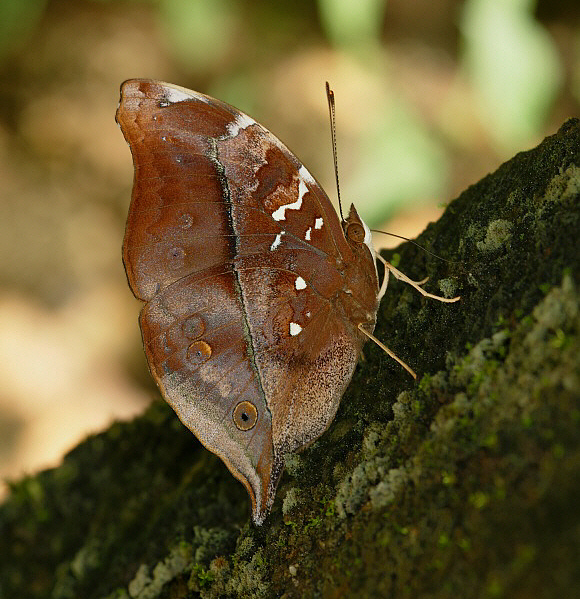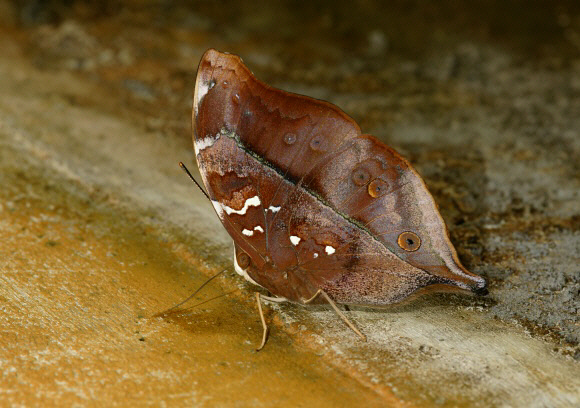
Introduction
The Indo-Australian genera Doleschallia and Kallima, and the African genera Kamilla, Mallika, and Kallimoides are collectively known as Dead Leaf butterflies. They are characterized by having a produced apex, and the hw tornus extended to form a short tail. The resulting shape, together with the cryptic dead-leaf coloration bears a remarkable resemblance to a dead fallen leaf, complete with a ‘midrib’, and markings resembling patches of mould and leaf galls.
The genus Doleschallia comprises about 8 described species, although the status of some of these is questionable, some authors considering that at least 4 of them are just subspecies of bisaltide.
Both sexes are very similar, and on the upperside are orange-brown, except for the subapical area which is blackish.
Doleschallia bisaltide occurs in India, Sri Lanka, Myanmar, Thailand, Laos, West Malaysia, Sumatra, Borneo, Palawan, Sulawesi, and north-eastern Australia.
Habitats
This species breeds in primary and secondary rainforest at altitudes between 0-1400m.
Lifecycle
The fully grown caterpillar is black, adorned with short whorled spines. It has a series of broken, broad white stripes along the back, and a pair of thin broken off-white lines below the spiracles. The abdominal segments each carry a large red tubercle below each spiracle. The head is steely blue. It feeds gregariously on plants including Artocarpus ( jack fruit ), Pseuderanthemum, Calycanthus, and Graptophyllum ( Acanthaceae ). The caterpillars are parasitized by Chalcid wasps, which emerge after the larvae has pupated.

Adult behaviour
The butterflies have a strong, direct and very rapid flight. They are usually encountered singly in glades and small clearings, or along forest roads.
Males imbibe moisture from damp sand and rocks on riverbanks and roadsides. If disturbed they fly up rapidly but re-settle nearby on walls or tree trunks, assuming a downward-facing posture, with wings closed.
